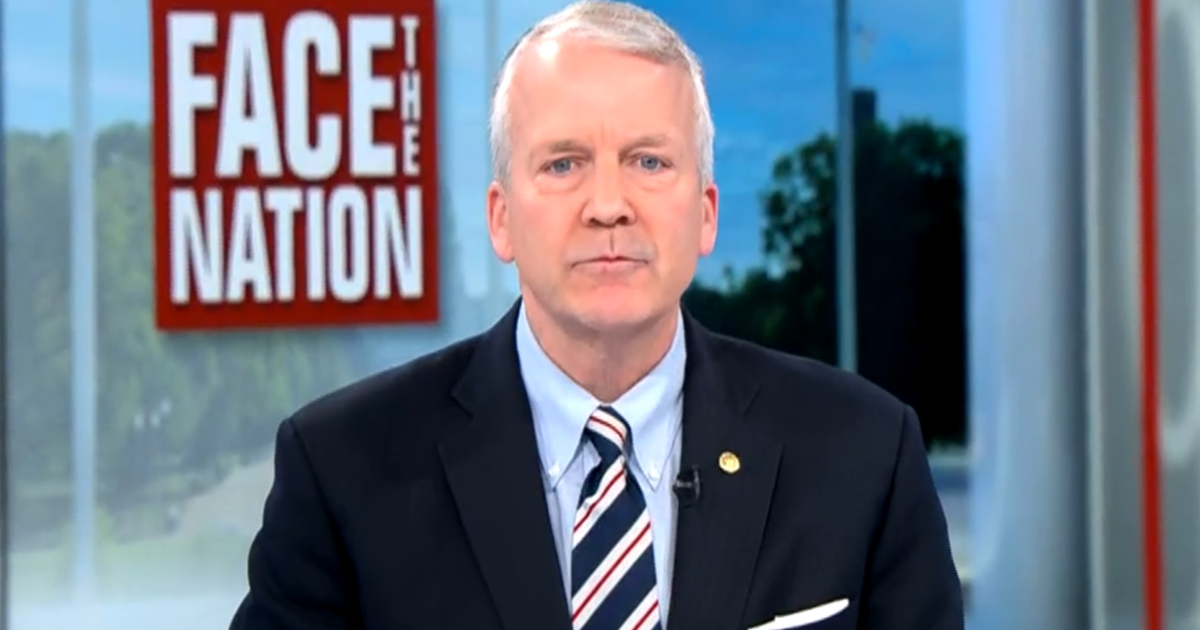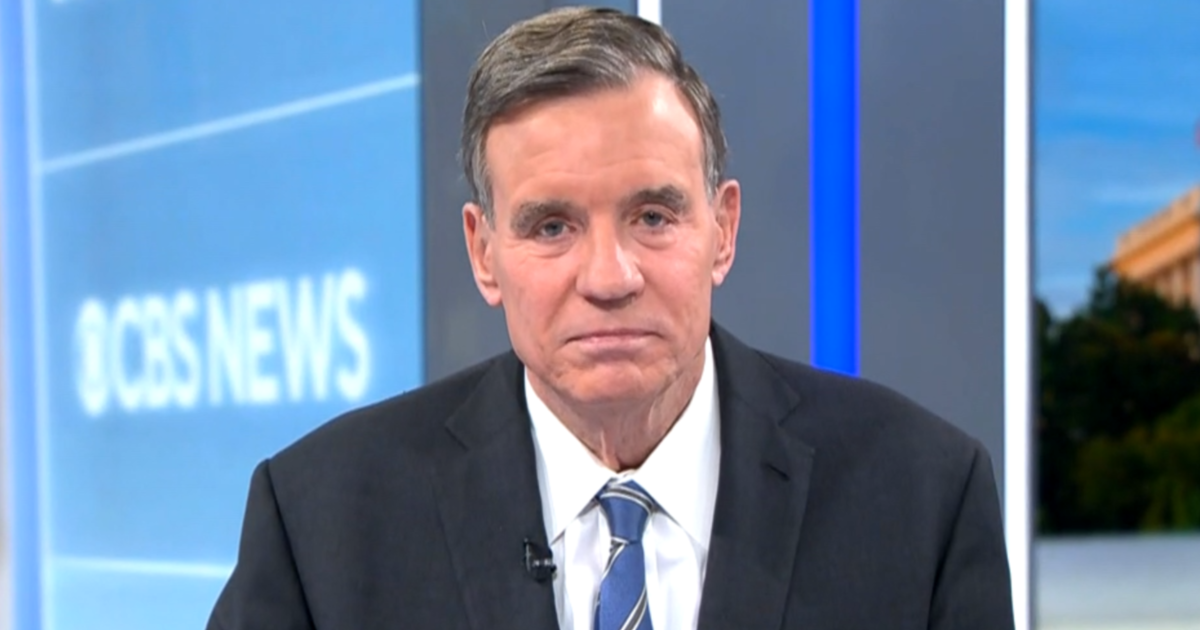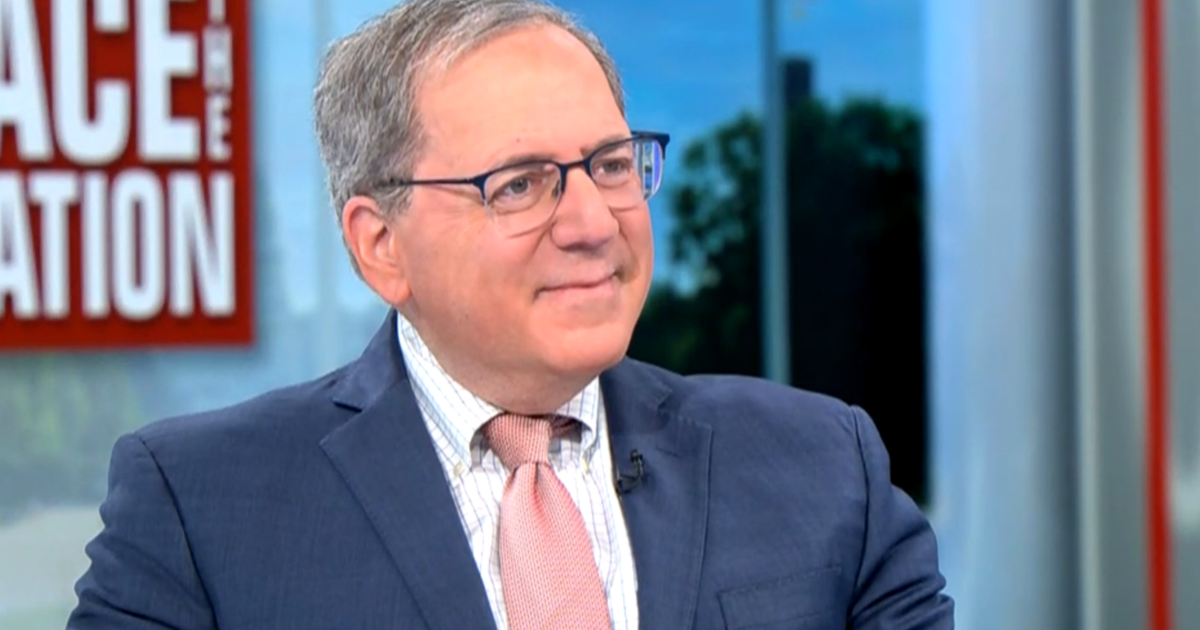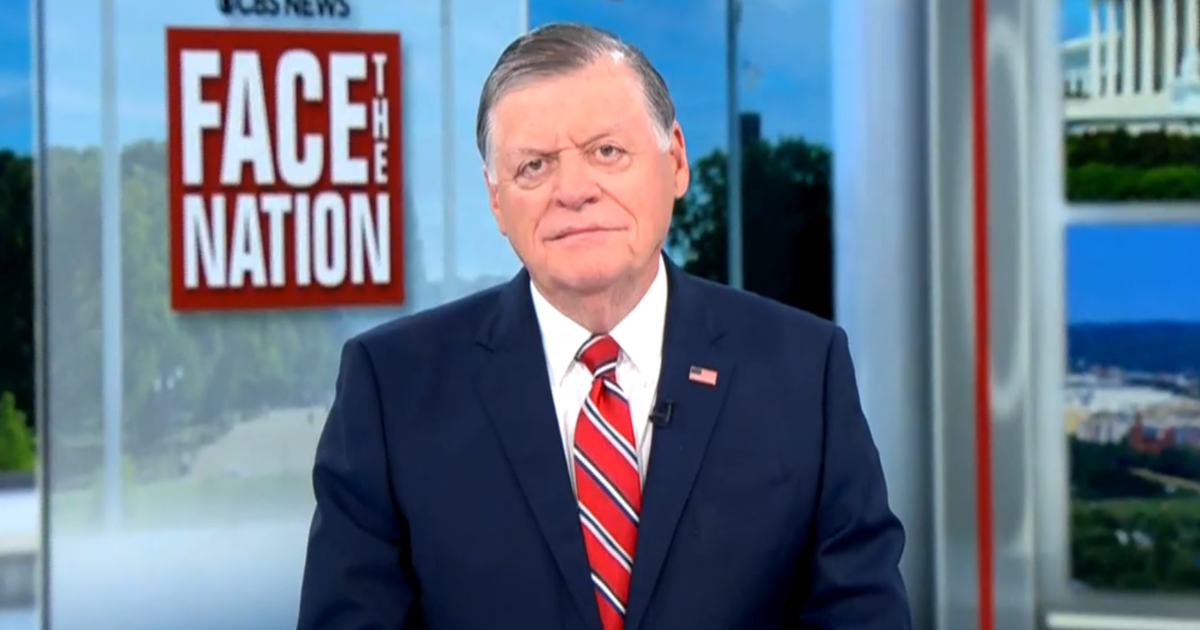Transcript: Neel Kashkari on "Face the Nation," August 1, 2021
The following is a transcript of an interview with Minneapolis Federal Reserve Bank President Neel Kashkari that aired on Sunday, August 1, 2021, on "Face the Nation."
JOHN DICKERSON: Welcome back to FACE THE NATION. The highly contagious Delta variant could also complicate America's economic recovery. We go now to Neel Kashkari, the president and CEO of the Minneapolis Federal Reserve Bank. Good morning.
PRESIDENT OF THE FEDERAL RESERVE BANK OF MINNEAPOLIS NEEL KASHKARI: Good morning, JOHN.
JOHN DICKERSON: Let's start with the Delta variant. What effect do you think it's having on the economy?
KASHKARI: Well, it's really- it's creating a bunch of caution. Right now, we have seven to nine million Americans who are still out of work that we need to get back into the job market. We believe that they're out of work because they've been nerve- nervous about COVID, because of childcare issues, because of these enhanced unemployment benefits. So I was very optimistic the fall would be a very strong labor market with many of those Americans coming back to work. That's still my base-case scenario. But if people are nervous about the Delta variant, that could slow some of that labor market recovery and therefore be a drag on our economic recovery. So the sooner we can get people vaccinated, the sooner we can get Delta under control, the better off our economy is going to be.
JOHN DICKERSON: When people are coming back into the labor market or they have existing jobs we hear a lot of stories. We hear- the president was asked at a town hall last week a restaurant owner said, I'm having trouble finding people. And the president said, yeah, well, you're going to have a tough go of it because people are negotiating for higher wages, for more benefits. What's your view of where jobs are right now and the leverage that workers may have and how that affects the economy?
KASHKARI: Well, this is- this is unlike any other downturn any of us have lived through. So the US economy went through a rapid shutdown and now a rapid reopening. And there are a lot of adjustments that need to take place. And so we are seeing wages pick up, which is a good thing. They're picking up most quickly for the lowest income workers. And in some of those service sectors, like the restaurant workers. And you know what? Those folks are long overdue for a raise. So I think net-net that's positive. I think at the end of the day, there's going to be more of a balance between business and between the labor sector once we bring these seven to nine million Americans back to work. So right now, the economy is reopening more quickly than the- than the labor supply is coming online. That mismatch is giving some workers some power. I think they deserve to have some power, but I think it's going to balance out as we get back to normal.
JOHN DICKERSON: And by the way, do you still have a timeline for getting back to normal, your sense of the recovery and how it goes? As you said, we're in a situation where this is, you know, we haven't had to come out of a pandemic for more than a hundred years.
KASHKARI: Well, you know, in December of last year, the Federal Reserve said that we were going to keep our asset purchases going, which is a form of stimulus for the economy until we've made substantial further progress in the labor market. We're about a third of the way back from that- where the hole was in December. So we've made progress, but we are still in a deep hole. I mean, 7 to 9 million Americans should be working right now if the pandemic had never happened. So that's a lot of Americans that we need to put back to work. And that's what I'm very focused on, how quickly we can get them back. You know, the last recovery took 10 years to put everybody back to work. We cannot have another 10 year recovery. I'm optimistic it can happen more quickly. But is it six months or is it two years? I'm not sure.
JOHN DICKERSON: All right. Inflation. The question everybody wants an answer to. When we last talked, you thought it was perhaps temporary. You predicted essentially the increase in prices. Was it greater than you thought? And what's your baseline view about inflation?
KASHKARI: It was greater than I thought, but my baseline view is still that it's temporary. We're seeing a lot of inflation in a few sectors of the economy that are closely tied to the pandemic. So we're seeing most of the inflation in the auto sector and in travel and transportation. So hotels and things and airline tickets and rental cars. But we're not seeing broader inflation across the economy as a whole. And some of it is just math. You know, prices fell a lot last year. They're bouncing back. So the inflation readings look really high. If you look across a two-year measure, inflation is around 2.3 or 2.4%. So I still think it's transitory, but we're paying very close attention. And financial markets are signaling that they think long term inflation is solidly in check, in anchored around 2%, which is where we want it to be.
JOHN DICKERSON: What is your feeling then about the CEO of Intel said because of the microchip shortage, things might not get to normal until 2023? This week, Anheuser-Busch said Budweiser is going to- is having trouble because of supply issues. Caterpillar, the heavy equipment manager, is worried about it. Procter and Gamble said they're going to cost- it's about $2 billion in additional costs. These are a lot of sectors- the housing sector is having trouble because of supply issues. Those are a lot of different sectors that seem to be having issues with supply. Isn't that an inflation worry?
KASHKARI: It is an inflationary worry, but I think in most of those cases, the expectation is those supply chain issues are going to get worked out. Remember a year ago we couldn't get toilet paper. Now, if you go to the grocery store, the shelves are full of toilet paper. Lumber prices skyrocketed. Now they're falling back down to earth. So these price increases are real. I'm not dismissing that. But a lot of the supply chain issues, I mean, this is the market at work as businesses are trying to work out their- their issues and become more efficient. And this is why it goes back to the virus as the Delta variant is spreading around the world, it's creating issues all around the world in a lot of our global suppliers. So the more we can do to get control of the Delta variant, the more quickly we're going to be able to resolve many of these supply chain issues.
JOHN DICKERSON: Final question. Give people a template for thinking about the debate we're about to have here in Washington about spending. Senator Manchin was just on saying he's worried about the effect on the debt and deficit. The White House says unless this money is spent building American jobs, American growth won't be what we want it to be. How should people think about federal spending and this question of the debt and inflation?
KASHKARI: Well, long term interest rates for US government debt are very, very low. That signals that investors around the world have a lot of confidence in the US economy to support that debt and to grow over the long term. Now, I think there's a difference between spending on infrastructure investment, where you can expect a reasonable rate of return and spending on consumption. The infrastructure bill that I've seen focuses on things like roads and bridges and broadband internet. Those things should be good for U.S. long term economic growth. Those are smart things to invest in, from my humble opinion.
JOHN DICKERSON: All right, Neel Kashkari, thank you so much for being with us. We really appreciate it. And we'll be right back.



